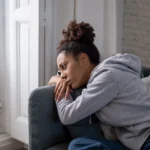The Role of Group Therapy in IOP
Group therapy is a critical component of IOPs, providing individuals with a support system of peers facing similar challenges. Sessions typically involve 7 to 10 members and last between 90 to 120 minutes. This group setting allows participants to connect, share experiences, and provide mutual support.
Engaging in group therapy helps individuals release emotions through shared experiences and enhances self-reflection. Participants can provide and receive feedback, which contributes to their personal growth and emotional regulation. This collective environment fosters a sense of community and belonging, which is vital for recovery.
Group therapy also helps improve social skills by allowing individuals to practice communication in a safe environment. Observing the success of peers can instill hope and motivation for personal improvement, making group therapy a powerful tool in the recovery process.
Medication Management in IOP
Medication management plays a crucial role in Intensive Outpatient Programs (IOPs), ensuring that individuals receive the appropriate pharmacological support alongside their therapy. At Atlantic Behavioral Health, board-certified psychiatrists and advanced practice nurses oversee medication management for adult patients. This professional oversight ensures that medications are both safe and effective for each individual.
Integrating medication management with other therapeutic approaches enhances the overall effectiveness of IOPs. This comprehensive treatment strategy addresses the multifaceted nature of depression, providing individuals with the best possible chance for recovery.
Virtual IOP Options
Virtual psychiatric day treatment* offer a convenient treatment option for individuals who need mental health care but cannot attend in-person sessions. These programs provide remote access, allowing individuals to receive treatment from the comfort of their homes. This flexibility is particularly beneficial for those with busy schedules or mobility issues.
The flexibility of virtual IOPs enables individuals to balance their treatment with everyday responsibilities, such as work or family commitments. This accessibility makes it easier for individuals to engage in their recovery process without significant disruptions to their daily lives.
Family Involvement in IOP
Family involvement is a crucial aspect of Intensive Outpatient Programs (IOPs), providing emotional support and accountability during the recovery process. Involvement of family members can help diminish feelings of isolation for individuals undergoing IOP. Family counseling sessions educate families on addiction and mental health issues, fostering a supportive environment.
Effective communication and conflict resolution skills are taught to families in IOP, helping them support their loved ones’ recovery. This collaborative approach ensures that individuals have a strong support system as they navigate their mental health journey.
Is IOP Right for You?
Determining whether an IOP is the right choice involves evaluating personal circumstances and consulting with a mental health professional. IOPs are suitable for those needing more support than weekly therapy sessions can provide but do not require inpatient care. Professional assessments help tailor treatment plans to individual needs, ensuring the most effective care.
Factors such as availability for treatment sessions and personal responsibilities should be considered when deciding on IOP. Weighing these factors helps individuals decide if IOP aligns with their mental health needs and life circumstances.
Atlantic Behavioral Health’s Approach to IOP
Atlantic Behavioral Health is dedicated to managing a wide range of mental health concerns, including anxiety disorders, depression, bipolar disorder, and mental health disorders. For those seeking depression IOP in Boston, their approach involves providing intensive support without the need for hospitalization, making it accessible for many individuals.
Atlantic Behavioral Health offers a combination of therapy and medication management, tailored to the specific needs of each patient. This comprehensive approach ensures that individuals receive the best possible care for their mental health challenges.
Atlantic Behavioral Health integrates various therapy modalities, such as CBT and DBT, to provide a holistic treatment plan for those in need.
Throughout this guide, we have explored the multifaceted nature of Intensive Outpatient Programs (IOPs) and their effectiveness in treating depression. From their structured yet flexible approach to their integration of various therapeutic modalities, IOPs offer a valuable option for those seeking comprehensive mental health care.
If you or a loved one is struggling with depression, consider the benefits of IOP. With personalized treatment plans, professional oversight, and a supportive community, IOPs provide a pathway to recovery and long-term well-being.
Frequently Asked Questions
What is an Intensive Outpatient Program (IOP)?
An Intensive Outpatient Program (IOP) is a structured treatment option that provides multiple weekly therapy sessions for individuals dealing with depression and other mental health issues, while allowing them to continue their daily routines without hospitalization. This approach enables effective management of mental health conditions in a supportive environment.
How do IOPs address depression?
IOPs address depression by employing therapeutic approaches such as Cognitive Behavioral Therapy (CBT) and Dialectical Behavior Therapy (DBT), which assist individuals in managing depressive symptoms and enhancing emotional regulation. This multifaceted approach aims to foster positive mental health outcomes.
Are IOPs effective in treating depression?
IOPs have proven effective in treating depression, demonstrating significant symptom improvements and offering long-term benefits for participants.
Can IOPs be personalized to individual needs?
Yes, IOPs can be personalized to meet individual mental health needs, ensuring that treatment plans are tailored for effective care.
What role does family involvement play in IOP?
Family involvement plays a crucial role in Intensive Outpatient Programs (IOP) by providing essential emotional support, which reduces feelings of isolation for individuals in recovery. This support enhances the overall effectiveness of the treatment process.







